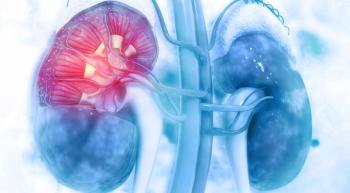
- April 2018
- Volume 12
- Issue 3
After Cancer Treatment Ends, This Nurse's Work Begins
Alene Nitzky PhD, RN, OCN, incorporates creativity, authenticity, resourcefulness, and empathy into her career as a wellness consultant to survivors.
Alene Nitzky, PhD, RN, OCN, helps survivors on the road to wellness using a unique blend of complementary skills. As an oncology nurse who is also an exercise trainer certified by the American College of Sports Medicine and the American Cancer Society, Nitzky draws on her varied training to address the often complex survivorship needs of people who have completed cancer treatments but feel they need further support to reach a new normal.
STEPPING STONES
Nitzky started out as a health educator, became a personal trainer, and in her 40s, returned to school to become a nurse. While working as an oncology nurse in a hospital infusion clinic, Nitzky listened to her patients talk about the issues they faced and sensed that they felt adrift once their treatments ended.
She started attending community support groups to get a feel for patients’ concerns once they finished their medical treatments. Over and over, she heard how people thought that after treatments were over, they would be back to normal. But aftereffects and consequences of treatment can be long-lasting, and some will never go away. Recovery can be a complicated and sometimes slow process, and survivors often flounder, dealing with physical and emotional issues they didn’t expect to have as a part of their postcancer life.
“People get through treatment and don’t have an idea of how they’re going to feel,” Nitzky says. “They don’t have an idea of what’s realistic for themselves.”
As she listened to her patients and the support group attendees, she realized that she could help fill that posttreatment need for support. “I realized I would be able to work with survivors, because I have a background in recreation, health, exercise, and oncology,” she says. “I could put all this together. It makes sense. Everything in my life has pointed to this.’ ”
And so, Cancer Harbors was born.
CANCER HARBORS
Cancer Harbors is Nitzky’s 6-month skill-building program for selfcare. Through the program, she coaches survivors to be advocates for their own health, helps clients understand what to ask providers, and encourages them to gain the confidence to ask those questions.
Survivors expand their resource base for recovery from treatment, learn about a variety of community resources for self-care, and find out what helpful products and services are available. Nitzky also helps survivors set goals, define their values, and understand what is most important to them.
FIERCE FITNESS AND EDUCATION
Nitzky also runs a free support group for survivors called FIERCE: Functional & Fit, Independent, Energized, Restored, Confident & Empowered at the Raintree Athletic Club in Fort Collins, Colorado.
The gym’s location appeals to FIERCE participant Jean Lehmann, who would rather not spend time in a medical setting now that she has completed treatment. She also appreciates being among survivors who do not dwell on their illness but, instead, understand her issues.
“We don’t really talk about having cancer,” Lehmann says. “I want to be Jean first. But I’m with people who—if something comes up—they all get it. Because they’ve been there.”
Over the past 3 years, the FIERCE program has evolved beyond stretches and exercises to include an array of fitness techniques. Nitzky brings in speakers to introduce survivors to tai chi, biofeedback, qigong, Pilates, and yoga—each practice offering a different approach to physical recovery from the effects of cancer or its treatment—as well as a nutritionist to discuss diet.
“People might benefit from talk support groups for a little while, but they need to move on, have some normalcy in their lives, and expand their horizons,” Nitzky says. “Our group also helps with the cognitive aspects [of recovery]. Survivors might have brain fog, feel anxious, or feel like they’re not thinking clearly. Interaction, exercise, and learning new things is so good for them.”
Nitzky takes a holistic perspective, incorporating relaxation techniques and advice on dealing with aftereffects and anxiety. She tries to personalize topics and exercises to the participants, based on their requests and conditions.
As a certified cancer exercise trainer, Nitzky understands patients’ specific needs. “For example, if a person has low platelets, you don’t want them to do any impact activities,” she says. “If their immune system is weak, you don’t want them around a lot of other people. If they have lymphedema or they’re at risk for lymphedema, you have to be careful about the kinds of exercises you do, so you don’t trigger that.”
Cancer treatment affects survivors’ abilities, so she considers whether a participant has recently finished radiation or had surgery, for example. She realizes that they may have lost muscle mass or developed anemia after chemotherapy, and their bone marrow may not have recovered. “You have to be careful about how hard people push themselves, because you don’t want to deplete their muscles and their heart of oxygen. You want to make sure they ease into it,” Nitzky says.
Jane Kinney, who is 5 years past her surgery for stage IV thyroid cancer, attended the FIERCE support group and found the expertise valuable. Nitzky identified medical issues that arose after Kinney’s surgery, during which 59 lymph nodes were removed. “One of my cheeks would swell way up. The surgeon basically just dismissed it,” Kinney says. “I didn’t know, but it was just lymphedema. Alene was the one who identified it. She knew what it was right away.
“I also would sometimes have pain all over my body,” Kinney says. “I thought, ‘That’s just the way it is.’ But when I mentioned it to Alene, (she) suggested that I might need more vitamin D. She told me to talk to my doctors, and I did, and they gave me a pretty high dose of vitamin D. Alene made my quality of life so much better.”
NAVIGATING THE C
Drawing on her broad experience with survivorship care, Alene Nitzky, PhD, RN, OCN, wrote Navigating the C: A Nurse Charts the Course for Cancer Survivorship Care, a book that discusses the different stakeholders in cancer care and how they can all do a better job of supporting people going through the cancer experience. To improve survivors’ health, quality of life, and outcomes, as well as reduce healthcare costs, she recommends an approach that incorporates creativity, authenticity, resourcefulness, and empathy—or CARE—at all levels of the healthcare system. The book contains samples of materials used in the Cancer Harbors and FIERCE programs, and in an appendix, Nitzky proposes a cancer literacy program to help reduce the general public’s fear, trauma, and misinformation around cancer. For more information, visit cancerharbors.com/navigating-the-c.
Articles in this issue
almost 8 years ago
Doing Favors for Patientsalmost 8 years ago
A Navigator Helps Patients Weather the Stormsalmost 8 years ago
Oncology Nurses in Fund-Raisingalmost 8 years ago
Fasting During Cancer Treatmentalmost 8 years ago
Helping Survivors of Head and Neck Cancer Face the FutureNewsletter
Knowledge is power. Don’t miss the most recent breakthroughs in cancer care.


































